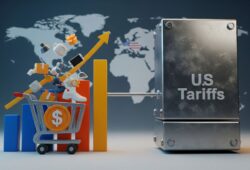After seven decades of being both the mecca of creativity and the target of its own shadows, Cannes Lions announces a new framework of standards to “clean house” and redefine the value of what truly deserves a Lion.
Starting in 2026, the world’s most influential creativity festival will implement a set of measures that, for the first time, aim to directly confront the structural problem of fake entries, inflated data, phantom executions, and the growing, uncontrolled use of synthetic content and generative AI.
An industry shining falsely
For years, Cannes Lions has celebrated ideas as spectacular as they were suspicious. Campaigns that won Gold, Grand Prix and then vanished from the real media landscape. Social cases as emotional as they were unverifiable. Brilliant activations that never made it beyond the render. All of this has formed part of what the industry knows—amid nervous laughter and complicit silence—as “truchos”: pieces created for festivals, not for brands, and certainly not for consumers.
The situation reached a critical point in 2025 when several winning entries had to be withdrawn after it was proven they had been digitally manipulated without proper disclosure. The scandal shook the festival’s credibility. It was the drop that spilled a cup already overflowing with suspicion.
Five pillars against simulation
As of 2026, all entries to Cannes Lions must comply with five integrity standards:
- Ownership and authenticity: Each entry must be signed off by the advertiser’s business leader and the client’s senior representative, certifying the truthfulness of data, testimonials, and results. Agency enthusiasm alone will no longer suffice.
- Veracity of claims: A dual-layer verification system will be implemented: human review + AI audit. Additionally, juries will have access to technical advisors to validate metrics, reach, and effectiveness. Beautiful “storytelling” will no longer be enough if it doesn’t withstand technical scrutiny.
- Clear consequences: If falsehoods are detected, awards may be revoked even after they’ve been granted. Agencies may be banned for up to three years, and their representatives disqualified from serving as jurors.
- Independent council: An “Integrity Council” made up of legal and ethical experts will be established to arbitrate questionable cases and ensure fair processes for all parties involved.
- Public annual audit: Cannes Lions will publish an annual report detailing reviewed cases and improvements made, serving as a mirror forcing the industry to face itself.
Are these measures enough, or just smoke and mirrors?
According to its announcement, the set of actions is ambitious, precise, and, on paper, beyond reproach. But the real problem Cannes Lions aims to dismantle is not technical—it’s cultural: for years, the industry has rewarded “pretty” ideas over “truthful” ones. In an environment where advertising glory was measured in metal, not in real-world impact, many creatives—under pressure from agencies that offer financial incentives—began designing ideas exclusively for juries, not for audiences.
The core of the new system lies in its promise of accountability. If Cannes Lions remains faithful to its new framework, many “awards-only” projects will no longer thrive. The cross-check between client and agency, combined with external auditing, dismantles the main excuse for the trucho: lack of oversight.
Still, the biggest challenge will be execution. How many agencies are willing to have their ideas go through this filter? How many clients will sign their names to certify the authenticity of campaigns they may not have approved? How many jurors will dare to eliminate popular pieces if the numbers don’t add up?
The beginning of a new era?
Simon Cook, CEO of Lions, sums it up clearly:
“Creativity is only valuable if it’s credible. And credibility must be earned, not assumed.”
With these new rules, Cannes Lions is staking its prestige. If successfully enforced, they could mark the end of the trucho era and the beginning of more responsible creativity. Perhaps no less inspiring—but certainly more honest. A creativity that not only wins over juries, but also markets, people, and, why not, the truth.
But if these measures remain intentions rather than actions, the festival risks continuing to be a fireworks show: brilliant, loud, and as short-lived as the real-world impact of some of the ideas it applauds.
Keep reading:
-
8 ideas que demuestran cómo la innovación publicitaria puede cambiar vidas
-
Leones en disputa: una iniciativa quiere reasignar los premios que dejó el caso DM9
-
3 lecciones sobre creatividad efectiva que dejó Cannes Lions 2025, según Warc
-
Cannes Lions 2025: renuncia el CCO de DM9 por el video-case manipulado con IA
-
Los dos mejores trabajos de packaging en Cannes Lions 2025: Moctezuma y Cadbury










